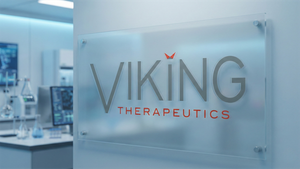Camidanlumab tesirine (Cami) demonstrated anti-tumoral activity response rate in 86% of Hodgkin lymphoma patients at dose currently being evaluated in ongoing pivotal Phase 2 trial
ADC Therapeutics SA (NYSE: ADCT), a commercial-stage biotechnology company leading the development of novel antibody drug conjugates (ADCs) to treat hematological malignancies and solid tumors, today announced that results of the Phase 1 clinical trial of camidanlumab tesirine (Cami), an anti-CD25 ADC, in patients with relapsed or refractory Hodgkin and non-Hodgkin lymphomas have been published online in The Lancet Haematology.
“There is a significant unmet medical need for novel therapies that improve outcomes in patients with relapsed or refractory Hodgkin lymphoma,” said Mehdi Hamadani, MD, Professor of Internal Medicine at the Medical College of Wisconsin, Division of Hematology & Oncology and lead author of The Lancet Haematology paper. “This patient population is often heavily pretreated, as was the case in this published study in which patients experienced a median of five previous systemic therapies. The Phase 1 study demonstrates encouraging potential for Cami to provide a new treatment option for patients with relapsed or refractory Hodgkin lymphoma.”
The multicenter, open-label, single-arm, dose escalation and dose expansion Phase 1 clinical trial enrolled 133 adult patients, 77 (58%) with classical Hodgkin lymphoma and 56 (42%) with non-Hodgkin lymphoma. Enrolled patients were required to have pathologically confirmed relapsed or refractory Hodgkin lymphoma or non-Hodgkin lymphoma and no therapies with established clinical benefit for their disease stage available to them.
“We’re pleased the results of our Phase 1 trial of Cami in patients with relapsed or refractory lymphoma have been published in The Lancet Haematology,” said Jay Feingold, MD, PhD, Senior Vice President and Chief Medical Officer at ADC Therapeutics. “The positive results in patients with Hodgkin lymphoma guided the design of our pivotal Phase 2 trial, which has completed enrollment. We’re continuing to follow patients and look forward to presenting data from the Phase 2 Cami trial at an upcoming congress.”
Key results include:
- In the total patient population, the overall response rate (ORR) was 58%, with 38 (29%) of 130 patients reported to have a complete response.
-
In heavily pretreated patients with Hodgkin lymphoma, across all doses, the ORR was 71%, with 32 (42%) of 77 patients reported to have a complete response.
- In Hodgkin lymphoma patients who received 45 μg/kg (the recommended Phase 2 starting dose), the ORR was 86%, with 18 (49%) of 37 patients reported to have a complete response.
- In Hodgkin lymphoma patients who received 30 μg/kg, the ORR was 55%, with seven (35%) of 20 patients reported to have a complete response.
- In patients with non-Hodgkin lymphoma, the ORR was 38%, with five (9%) of 53 patients reported to have a complete response.
- The overall median duration of response was 6.6 months for all patients with Hodgkin lymphoma and 7.2 months for Hodgkin lymphoma patients who received 45 μg/kg.
- Cami demonstrated an acceptable safety profile. The most commonly observed adverse events included elevated liver enzymes (without hepatic synthetic dysfunction), rash, fatigue, oedema or effusion, and nausea.
Based on the data from this Phase 1 clinical trial, a Phase 2 trial to further evaluate the safety and efficacy of Cami in patients with relapsed or refractory Hodgkin lymphoma is ongoing. Interim data from the pivotal Phase 2 trial presented at the 2020 American Society of Hematology meeting demonstrated encouraging antitumor activity as a single agent with an ORR of 83%, a complete response rate of 38% and no new safety signals. These data highlight the potential for Cami to address an unmet need in heavily pretreated patients (median of seven prior lines of systemic therapy).
For information about the ongoing pivotal Phase 2 clinical trial of Cami in patients with relapsed or refractory Hodgkin lymphoma, please visit https://clinicaltrials.gov/ (identifier NCT04052997).
About Camidanlumab Tesirine (Cami)
Camidanlumab tesirine (Cami, formerly ADCT-301) is an antibody drug conjugate (ADC) comprised of a monoclonal antibody that binds to CD25 (HuMax®-TAC, licensed from Genmab A/S), conjugated to the pyrrolobenzodiazepine (PBD) dimer payload, tesirine. Once bound to a CD25-expressing cell, Cami is internalized into the cell where enzymes release the PBD-based payload, killing the cell. This applies to CD25-expressing tumor cells and also to CD25-expressing Tregs. The intra-tumoral release of its PBD payload may also cause bystander killing of neighboring tumor cells, and PBDs have also been shown to induce immunogenic cell death. All of these properties of Cami may enhance immune-mediated anti-tumor activity.
Cami is being evaluated in a pivotal Phase 2 clinical trial in patients with relapsed or refractory Hodgkin lymphoma and a Phase 1b clinical trial as monotherapy and in combination with pembrolizumab in solid tumors.
About ADC Therapeutics
ADC Therapeutics (NYSE: ADCT) is a commercial-stage biotechnology company improving the lives of cancer patients with its next-generation, targeted antibody drug conjugates (ADCs). The Company is advancing its proprietary PBD-based ADC technology to transform the treatment paradigm for patients with hematologic malignancies and solid tumors.
ADC Therapeutics’ CD19-directed ADC ZYNLONTA™ (loncastuximab tesirine-lpyl) is approved by the FDA for the treatment of relapsed or refractory diffuse large B-cell lymphoma after two or more lines of systemic therapy. ZYNLONTA is also in late-stage clinical trials in combination with other agents. Cami (camidanlumab tesirine) is being evaluated in a late-stage clinical trial for relapsed or refractory Hodgkin lymphoma and in a Phase 1b clinical trial for various advanced solid tumors. In addition to ZYNLONTA and Cami, the Company has multiple PBD-based ADCs in ongoing clinical and preclinical development.
ADC Therapeutics is based in Lausanne (Biopôle), Switzerland and has operations in London, the San Francisco Bay Area and New Jersey. For more information, please visit https://adctherapeutics.com/ and follow the Company on Twitter and LinkedIn.
View source version on businesswire.com: https://www.businesswire.com/news/home/20210526005542/en/
Contacts
Investors
Eugenia Litz
ADC Therapeutics
Eugenia.Litz@adctherapeutics.com
+44 7879 627205
Amanda Hamilton
ADC Therapeutics
amanda.hamilton@adctherapeutics.com
+1 917-288-7023
EU Media
Alexandre Müller
Dynamics Group
amu@dynamicsgroup.ch
+41 (0) 43 268 3231
USA Media
Annie Starr
6 Degrees
astarr@6degreespr.com
+1 973-768-2170






